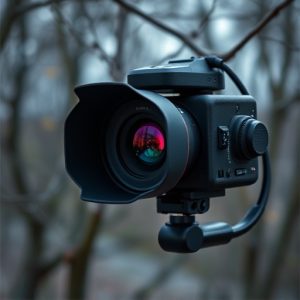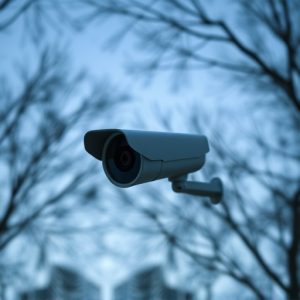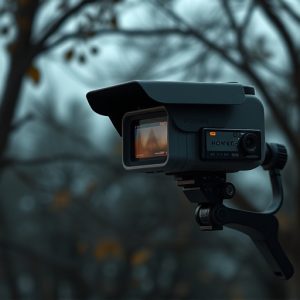Hidden Camera Detection: Protecting Privacy in Rental Spaces
In the rental property sector, landlords and tenants must navigate legal boundaries around surveilla…….
In the rental property sector, landlords and tenants must navigate legal boundaries around surveillance, with strict laws protecting tenant privacy, especially against covert cameras in living spaces. Battery-operated hidden childcare cameras spark privacy debates due to potential misuse. Tenants' rights include reasonable expectations of privacy, and landlords need explicit consent for any surveillance equipment to avoid legal issues. To prevent hidden cameras, tenants should inspect their space with UV lights, perform regular maintenance, and review lease agreements thoroughly. Proactive measures like these safeguard personal privacy in rental properties from these discreet recording devices.
In today’s digital age, landlords and tenants alike are navigating a complex landscape regarding privacy. This article delves into the often-overlooked issue of secret surveillance in rental properties, focusing on battery-operated hidden cameras. We explore the legal boundaries surrounding their use, common placement strategies, and the ethical implications on tenant rights. Additionally, we equip readers with preventative measures to safeguard their privacy and secure their living spaces from these covert devices, especially in childcare settings.
- Understanding Legal Boundaries: What You Need to Know About Surveillance in Rental Properties
- Common Hidden Camera Locations: Battery-Operated Options and Their Detection
- Ethical Considerations: The Impact of Secret Surveillance on Tenants' Privacy Rights
- Preventive Measures: Protecting Your Privacy and Securing Your Rental Space
Understanding Legal Boundaries: What You Need to Know About Surveillance in Rental Properties
In the realm of rental properties, understanding the legal boundaries surrounding surveillance is paramount for both landlords and tenants. While landlords have a legitimate interest in maintaining security and ensuring property integrity, they must operate within a strict legal framework to protect tenant privacy. In many jurisdictions, covert surveillance, especially in living spaces, is heavily regulated, with laws prohibiting the installation of hidden cameras without explicit consent.
One device that has gained attention for its potential misuse in this context are battery-operated hidden childcare cameras. These small, discreet cameras can be easily concealed and remotely monitored, raising concerns about privacy invasion. Tenants should be aware of their rights, which often include the expectation of reasonable privacy, and landlords must obtain proper authorization before deploying any surveillance equipment to avoid legal repercussions.
Common Hidden Camera Locations: Battery-Operated Options and Their Detection
In the quest to ensure safety and peace of mind, especially in rental properties often shared with others, battery-operated hidden childcare cameras have emerged as a concern for tenants. These tiny, discreet devices can be strategically placed in various common areas like bathrooms, kitchens, and even inside walls or furniture—places where they remain virtually invisible yet constantly record. However, awareness is key to countering this issue. Tenants should familiarize themselves with the layout of their rental unit, checking every nook and cranny for potential hidden cameras. Simple tools like UV lights can help detect these devices, as many have reflective surfaces that glow under such lighting. Additionally, regular maintenance and inspections can serve as preventive measures; looking for any unusual equipment or signs of tampering is crucial in identifying and mitigating the presence of battery-operated hidden childcare cameras.
Ethical Considerations: The Impact of Secret Surveillance on Tenants' Privacy Rights
The deployment of secret surveillance, particularly battery-operated hidden childcare cameras, in rental properties raises significant ethical concerns regarding tenants’ privacy rights. While the intention behind such measures may be to ensure child safety or property security, it infringes upon the fundamental right to expect privacy in one’s home. Tenants often sign lease agreements without fully comprehending these surveillance practices, leading to a subtle erosion of their personal freedoms.
The impact on tenants’ lives can be profound. These hidden cameras can capture intimate moments, create a sense of constant surveillance, and erode trust between landlords and residents. The use of secret surveillance technology may lead to a chilling effect, where individuals feel compelled to self-censor their behavior within their own homes, compromising their autonomy and peace of mind. Balancing the need for security with respect for privacy is paramount, especially as technology advances, offering increasingly sophisticated means of observation.
Preventive Measures: Protecting Your Privacy and Securing Your Rental Space
To protect your privacy and secure your rental space, it’s essential to be proactive about potential hidden surveillance devices. One common method used by unscrupulous landlords or tenants is installation of Battery Operated Hidden Childcare Cameras in strategic locations throughout the property. These tiny, unassuming cameras can be easily concealed, making them a stealthy yet invasive tool for monitoring activities.
To safeguard your personal space, conduct regular visual inspections and maintain an awareness of any unusual electrical outlets or devices. Consider installing security systems with visible cameras to deter unauthorized installation. Additionally, review your lease agreement thoroughly, paying special attention to clauses regarding surveillance and privacy. Know your rights, and don’t hesitate to consult legal advice if you suspect any breaches.
In today’s digital age, while technology offers enhanced security solutions like battery-operated hidden childcare cameras for concerned landlords, it’s crucial to balance privacy rights with safety measures. Understanding legal boundaries and implementing ethical surveillance practices is key to maintaining a harmonious relationship between property owners and tenants. By taking proactive steps to secure rental spaces and protect personal privacy, residents can feel safer without sacrificing their inherent rights.


